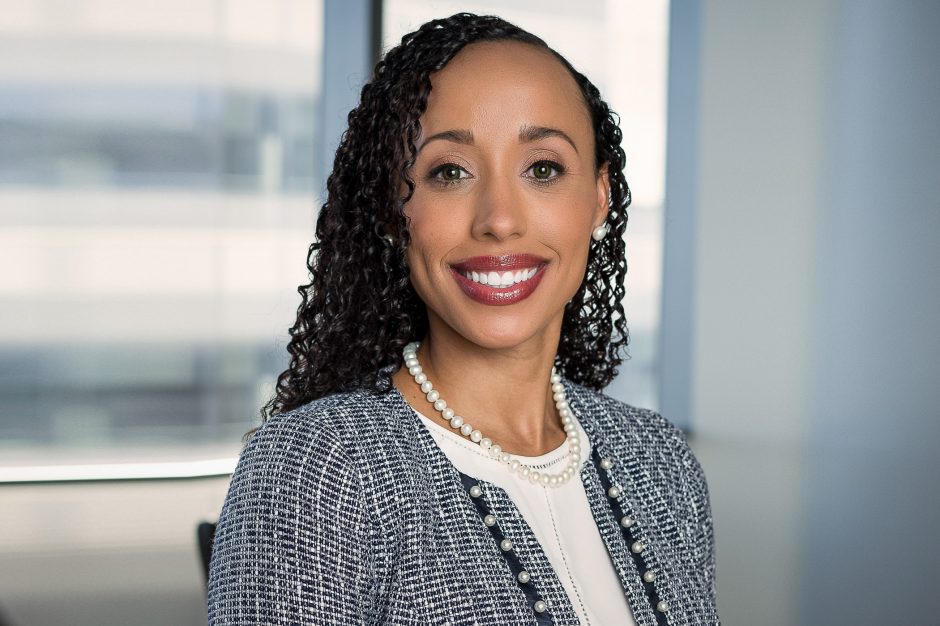
Sept. 26, 2024
Contact: Courtney Perrett, cperrett@missouri.edu
Photo courtesy Bill Sawalich/Barlow Productions
From self-driving vehicles to facial recognition software, artificial intelligence has infiltrated nearly every part of our daily lives. For Renee Henson, a professor in the University of Missouri’s School of Law, AI isn’t just helpful at home: It has become a fundamental component of her career.
“In some ways, AI technology is freeing,” Henson said. “I describe myself as a techno-optimist because I believe in this technology, and I think its capacities for doing good are unmeasured — an ability that will only increase as I use AI in my teaching and to improve my efficiency overall.”
Henson joined Mizzou’s faculty just over a year ago. She came from Stinson LLP, a law firm based in Kansas City, Missouri, where she specialized in products liability and intellectual property litigation.
When ChatGPT and other AI tools were popularized in the early 2020s, Henson said she was fascinated by the emerging legal issues and questions that bubbled up surrounding the technology. That curiosity led her to research the intersection of AI and tort law.
Industry to academy
AI is advancing at a staggering speed, and nobody knows that better than Henson. During her time practicing law, she came face to face with the unique and unprecedented ways products work and fail — and the legal ramifications of those functions.
An example Henson uses to illustrate the nuances of tort liability law in the age of AI is facial recognition technology.
“You might be entering a sports stadium and your face is being recorded,” Henson said. “In that moment, you might not have any knowledge of that recording.” Facial recognition technology can make errors leading to potential harm. Law enforcement agencies also use this technology. There are cases where individuals have been injured and have been wrongfully arrested, for example. “That’s another example of how AI technology is incorporated into our tools in ways that can cause physical and other harm.”
Because there is little precedent for AI usage and tort liability, Henson has focused her research on understanding tort structures to consider if there are better ways to shape the law to adapt to a future that involves AI.
“It’s important that lawyers are cautious and understand AI tools before they use them,” Henson said. “For example, one significant component of the ethical use of AI is not inputting any confidential or private information into an open source system — in other words, into a system that uses data to improve itself.”
Henson explained that attorneys can use AI tools to draft emails and summarize salient points from thousands of pages of documents — a process that saves them hours that would otherwise be billed to clients.
She cautions that while using AI can streamline a lawyer’s workflow, it’s important to differentiate between available AI system to make sure clients’ data is protected.
Teaching with chatbots
Henson is optimistic about the efficiency and ease that AI means for the law profession. And she’s making sure future lawyers are well-equipped to leverage the technology.
In one of her most recent examples of teaching with AI, Henson trained a chatbot to act as opposing counsel in a mock negotiation simulation she ran in the classroom. Coaching the bot to be obstructive, aggressive and difficult presented the perfect opportunity for her students to perform a live negotiation with the chatbot with the goal of coming to an agreement on obtaining documents.
“It was an interesting experience where students had to think on their feet in real time,” Henson said. “The opposing counsel was responding in a negative way in this case, and students had to figure out how to handle that. The simulation was not dissimilar from how a real-life opposing counsel would operate. The students really enjoyed that.”
Having grown into a mentor for many young attorneys at her former law firm, Henson viewed a transition from private practice to academia as the logical next step for jumpstarting her teaching career. After a little research, she knew that Mizzou would provide the best environment to nurture her journey into research and teaching.
“I love the act of teaching,” Henson said. “It’s energizing and rewarding, and being at Mizzou allows me the freedom to explore how best to go about teaching and mentoring the next generation of attorneys who will make a difference here in Missouri and beyond.”
Editor's Note: Looking for experts on AI? Mizzou has the experts you need.



